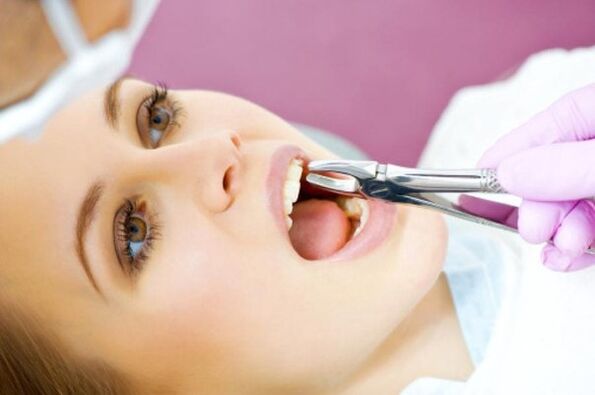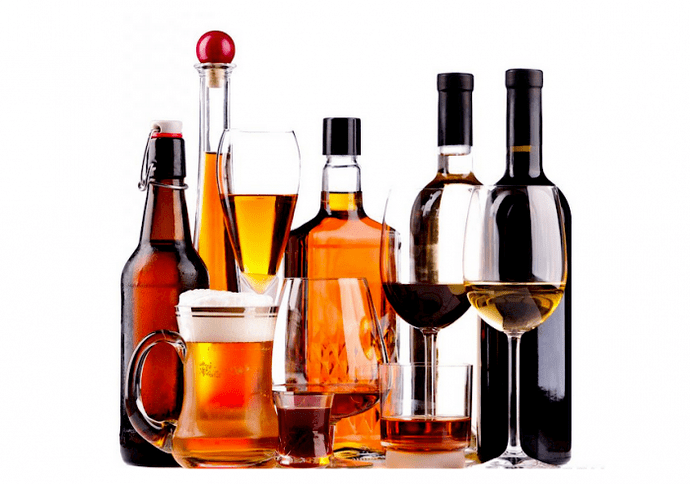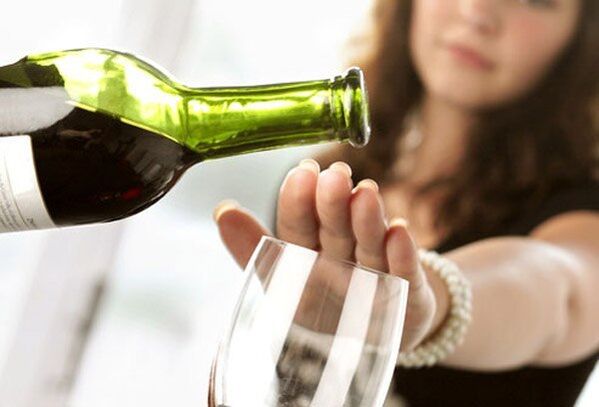Serious surgery, such as tooth extraction, is a complex process that results in a rather deep wound in the oral cavity at the site of the removed formation. To prevent inflammation and other complications following treatment, the patient should follow oral hygiene rules and dentist's recommendations. But sometimes there are situations where an event is planned in the near future after surgery and many ask questions - is it possible to drink alcohol after a tooth extraction and what are the consequences? In such cases, it is worth considering the specifics of dental treatment, the dangers after dental anesthesia and the possible consequences of consuming alcohol after tooth extraction.
Undesirable activities after dental surgery

In most cases, the integrity of the gums is compromised during the operation. Accordingly, the healing process takes place and the formation of bone tissue begins at the site where the roots were. It is very important here that everything is going well and that there is no bloating, swelling and open bleeding. The following are the operations that are contraindicated after the operation:
- Do not delay the gauze stick for more than 30 minutes - otherwise it will saturate with blood and become an excellent medium for the development of pathogenic microbes.
- The first day the tooth is removed, it is not necessary to rinse, otherwise it can simply break the blood clot formed in the hole. Doctors often prescribe special baths to relieve pain.
- At least on the first day after tooth extraction, you should not visit beaches, spas, saunas and other similar places - this can cause heavy bleeding in the mouth.
- Eating and drinking in the first two to three hours after removal is contraindicated - food debris can enter the unhealed wound and cause various infections.
- Consuming hot drinks on the first day after tooth extraction is contraindicated as it contributes to vasodilation, which can easily cause bleeding in the mouth.
- Physical work and sports are also contraindicated on the first day - they increase the risk of bleeding and the movement of a blood clot in a hole formed at the site of removal.
The tooth extraction operation is always a strain on the human body. You can take a responsible approach to this process and follow all of your doctor’s recommendations to speed up your recovery and make it uncomplicated. Can I drink alcohol before and after surgery? You should not do this because if you drink alcohol, the risk of complications is high.
Important! You should not drink alcohol after tooth extraction, not only during anesthesia, but also during full treatment with medications prescribed by your doctor. Alcohol poisoning can cause a number of complications.
Permissibility of alcohol after dental surgery

Everyone knows that there are different types of pain and toothache is considered the worst, no matter how many people you ask. Some people intentionally consume alcohol after tooth extraction to alleviate this pain, due to the disinfectant properties and stress-relieving properties of ethanol. Is it possible to drink alcohol after anesthesia of the tooth, and is it possible to drink beer after tooth extraction - to answer these questions, you simply need to list the effects of alcohol on the oral cavity after such an operation:
- Alcohol has a mucosal irritant effect, which severely slows the healing of the hole;
- The blood vessels dilate, the pressure rises, causing bleeding and edema;
- Alcoholic beverages can simply dissolve the blood clot in the well, leading to infection;
- The process of blood clotting causes disturbance, which again leads to bleeding;
- If beer is consumed, there is a risk of infection of fermentation products and pathogenic bacteria;
- Alcohol can cause anaphylactic shock and allergic reactions when interacting with anesthesia;
- When you interact with medications designed to suppress a person’s pain the day after the surgery is over, alcohol can cause a number of complications, depending on the medications you take.
Important! Concomitant use of alcoholic beverages and antibiotics overloads the liver, contributing to dizziness, nausea, vomiting and other unpleasant conditions. Especially in this case, it is dangerous to consume strong alcoholic beverages: vodka, whiskey, pure alcohol, fortified wine, etc.
The above implications may help answer the question many people who have undergone dental surgery ask themselves: is it possible to drink alcohol after a tooth extraction. And after all, these are far from all options for how alcohol affects teeth and the human condition.
If you choose the most severe consequences of consuming alcohol after a tooth extraction, you may want to consider anesthesia for such operations. It is sometimes called freezing. As you know, the tooth is usually removed under anesthesia. Before starting surgery, any qualified dentist will ask the patient about known drug allergies. And you ask this for a reason because allergic reactions are very different. Many medications are incompatible with alcohol, and taking them together can cause serious complications. For the same reason, if someone drank alcohol just before surgery, dangerous situations can arise. Therefore, in view of future anesthesia of the tooth, alcohol consumption should be stopped in advance for the surgery to go smoothly. It doesn’t matter if you drink beer or a concentrated drink - you should not drink alcohol in any form, even if you really want to drink. In addition, the effect of anesthesia combined with alcohol may be reduced and the tooth removed for a much longer time, which is not very pleasant.
Conditions for abstinence from alcohol during tooth extraction

An important question is how long to drink alcohol after tooth extraction? Not all patients follow the doctor's recommendations. Although explaining to him why you should not drink alcohol after a tooth extraction does not mean that you do not drink alcohol at your own expense or risk. Still, it is worth remembering that it is better to take the prescribed medications and follow your doctor’s instructions. If you stop taking the prescribed medication, the bleeding may recur after about 5 days and you may show symptoms of the infection and alcohol will only make it worse.
Important! It is strictly forbidden to drink alcohol after a tooth extraction until the hole is completely closed and the medication prescribed by the dentist, which many drink after such surgeries, is over.
Can I drink alcohol after removing my wisdom tooth? Wisdom teeth grown in old age, as well as other teeth in the jaw, do not tolerate the intake of alcoholic beverages after removal. A person who drinks any amount of alcohol a few hours after dental surgery can disrupt the healing process at the site of the extracted tooth.
Of course, visiting a dentist is a huge stress for many people. Their teeth are pulled out - and the emotions of getting rid of the depressing pain simply go wild. Alcohol in this case is usually used for sedation. However, such an irresponsible attitude to health can do far more harm to the whole body than a stressful condition. There are also a number of sedatives that do not contain alcohol to relieve stress. It is up to everyone to decide when to drink alcohol after any surgery, but a person who is sane enough will try to follow the doctors' recommendations for their own benefit. If someone drinks alcohol when it is banned by doctors, it hurts themselves.
























